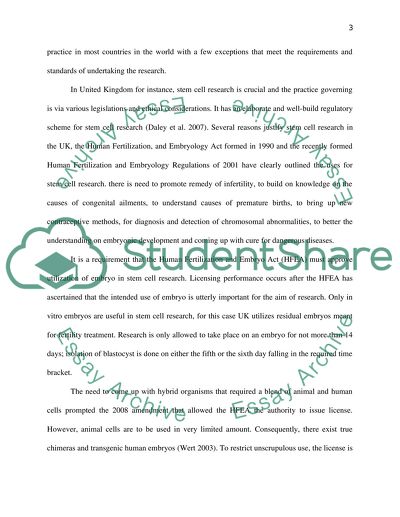Cite this document
(“Ethical and legal debate and implications of stem cell research Essay”, n.d.)
Ethical and legal debate and implications of stem cell research Essay. Retrieved from https://studentshare.org/health-sciences-medicine/1678865-ethical-and-legal-debate-and-implications-of-stem-cell-research
Ethical and legal debate and implications of stem cell research Essay. Retrieved from https://studentshare.org/health-sciences-medicine/1678865-ethical-and-legal-debate-and-implications-of-stem-cell-research
(Ethical and Legal Debate and Implications of Stem Cell Research Essay)
Ethical and Legal Debate and Implications of Stem Cell Research Essay. https://studentshare.org/health-sciences-medicine/1678865-ethical-and-legal-debate-and-implications-of-stem-cell-research.
Ethical and Legal Debate and Implications of Stem Cell Research Essay. https://studentshare.org/health-sciences-medicine/1678865-ethical-and-legal-debate-and-implications-of-stem-cell-research.
“Ethical and Legal Debate and Implications of Stem Cell Research Essay”, n.d. https://studentshare.org/health-sciences-medicine/1678865-ethical-and-legal-debate-and-implications-of-stem-cell-research.


